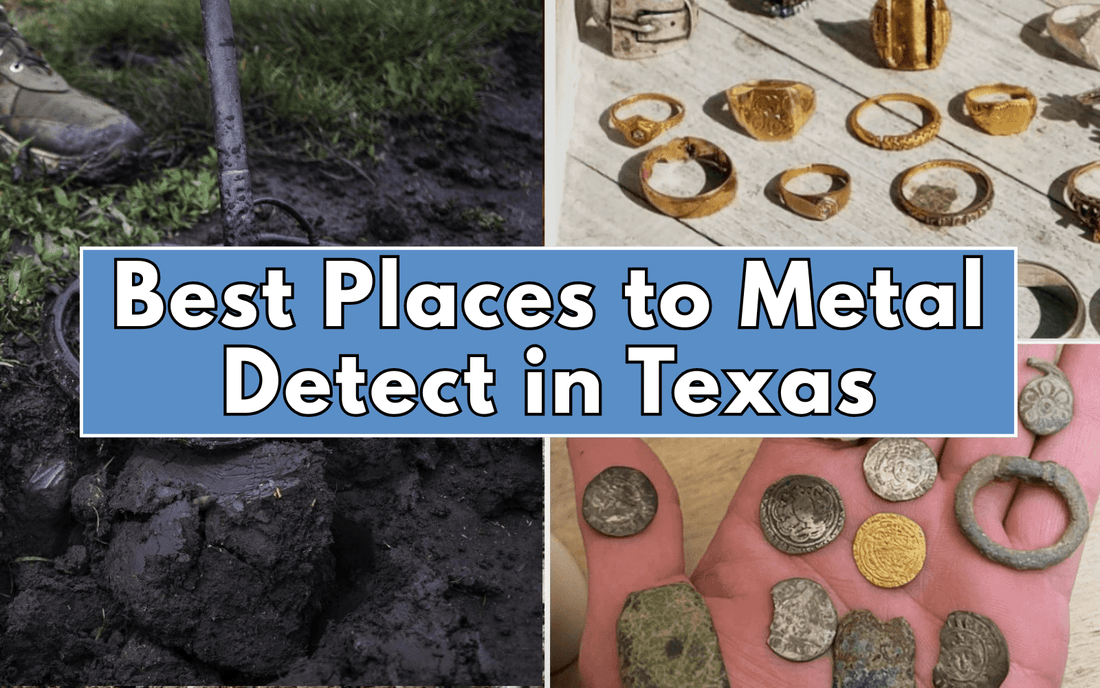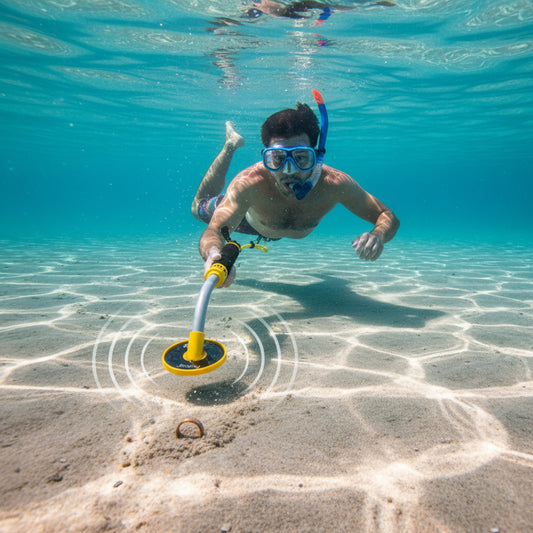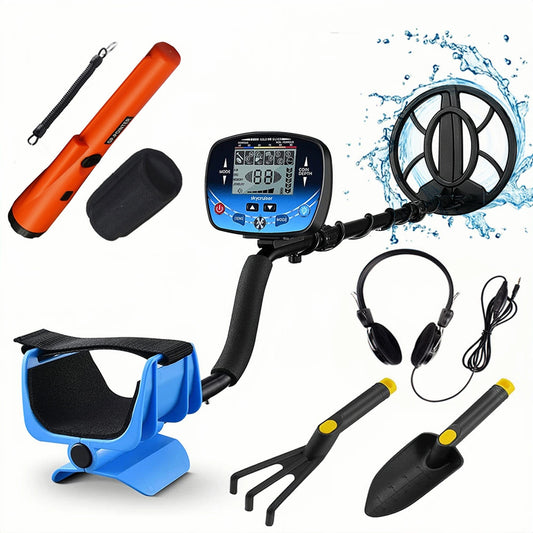
Best Places to Metal Detect in Texas: A Treasure Hunter’s Guide
Share
Texas is a treasure hunter’s paradise, offering a variety of landscapes and historical sites perfect for metal detecting. Whether you’re searching for relics from the past or modern lost items, the Lone Star State has countless opportunities for detectorists.
This guide will explore the best places to metal detect in Texas, including unique locations and tips for successful treasure hunting.
Why Metal Detecting in Texas is Unique
Texas’s rich history and diverse geography make it one of the best states for metal detecting.
From Native American artifacts to relics from Spanish explorers and Civil War campsites, the state’s vast terrain holds endless possibilities.
Additionally, modern beaches and urban parks provide opportunities for finding coins, jewelry, and other lost items.
Best Places to Metal Detect in Texas
1. Historic Sites

Texas is home to numerous historic sites that can yield fascinating finds:
- The Alamo: While detecting directly on this site is prohibited, nearby areas may hold artifacts from the Battle of the Alamo.
- San Jacinto Battleground: Surrounding areas of this historic battlefield may be open for detecting.
- Old Spanish Missions: Locations near missions like Mission Concepción may offer relics from early settlers.
Pro Tip: Always check local regulations before detecting near historic sites.
2. Beaches

The Gulf Coast beaches are some of the best places to metal detect in Texas:
- Galveston Island: Known for its high foot traffic and potential finds like coins and jewelry.
- South Padre Island: A popular tourist destination with plenty of opportunities for detecting.
- Corpus Christi Beach: Offers a mix of urban and natural areas ideal for treasure hunting.
Focus on wet sand areas after storms or high tides for freshly uncovered items.
Learn all about the best beaches to metal detect in texas.
3. State Parks

Some Texas state parks allow metal detecting with restrictions:
- Mustang Island State Park: A great spot for beach detecting.
- Brazos Bend State Park: Known for its natural beauty and potential historical finds.
- Lake Whitney State Park: Offers opportunities near water bodies and camping areas.
Check with park authorities to obtain necessary permits before detecting.
4. Rivers and Lakeshores
Waterways are excellent locations for finding lost treasures:
- Colorado River Banks: Potential finds include coins and jewelry lost by swimmers or boaters.
- Lake Travis Shores: Popular recreational area with opportunities for detecting near docks and picnic spots.
- Caddo Lake: Known for its mysterious beauty and potential historical finds.
Use waterproof detectors when searching near water bodies.
5. Urban Parks

City parks often yield modern treasures like coins, jewelry, and personal items:
- Zilker Park (Austin): A large urban park with high visitor traffic.
- Hermann Park (Houston): Offers a mix of open spaces and wooded areas perfect for detecting.
- Fair Park (Dallas): Known for hosting events, making it a hotspot for lost items.
Always check local ordinances before detecting in urban parks.
6. Private Land
Private properties can be treasure troves if you have permission from landowners:
- Old homesteads or ranches often hold relics from early settlers.
- Farmland may yield tools, coins, or other artifacts buried over time.
Pro Tip: Always obtain written permission before detecting on private land.
Tips for Successful Metal Detecting in Texas
To maximize your chances of finding treasures at these locations:
-
Research Historical Maps: Study old maps to identify promising spots.
-
Use the Right Equipment: Invest in versatile detectors suitable for different terrains (e.g., waterproof models for beaches).
-
Time Your Hunts: Early mornings or after storms are ideal times to detect.
-
Join Local Clubs: Connect with experienced detectorists who can provide insights into the best locations.
-
Record Your Finds: Keep detailed notes on where you found items to improve future hunts.
Legal Considerations
Before heading out to any location, ensure you comply with local laws:
-
State Parks Regulations: Many state parks require permits and restrict detecting to specific areas.
-
Historical Sites Protection: Detecting on protected historical sites is prohibited without special authorization.
-
Private Property Access: Always obtain permission before detecting on private land.
-
Treasure Reporting: Significant finds may need to be reported under the Texas Antiquities Code.
Learn all about legal considerations when metal detecting in Texas.
Common Finds When Metal Detecting in Texas

Texas’s diverse history makes it a hotspot for exciting discoveries:
-
Coins: Modern currency as well as Spanish silver coins from early explorers.
-
Jewelry: Rings, necklaces, and bracelets lost by visitors at beaches or parks.
-
Historical Relics: Tools, buttons, and artifacts from Civil War campsites or ranches.
-
Gold Nuggets: Found near old mining towns or rivers with gold panning history.
Conclusion: Exploring Hidden Treasures Across Texas
Texas offers endless opportunities for treasure hunters willing to explore its diverse landscapes responsibly. From bustling city parks to serene riversides and historic beaches, the Lone Star State is a goldmine waiting to be discovered.
By understanding local laws, obtaining necessary permissions, and practicing ethical detecting, you can enjoy this fascinating hobby while contributing positively to your community and preserving the state’s rich heritage.
Whether you’re searching for coins on a Gulf Coast beach or uncovering relics from early settlers near an old homestead, Texas provides a wealth of possibilities for detectorists of all levels. So grab your detector, pack your gear, and set out to explore—who knows what treasures await beneath its soil?
Happy hunting!




